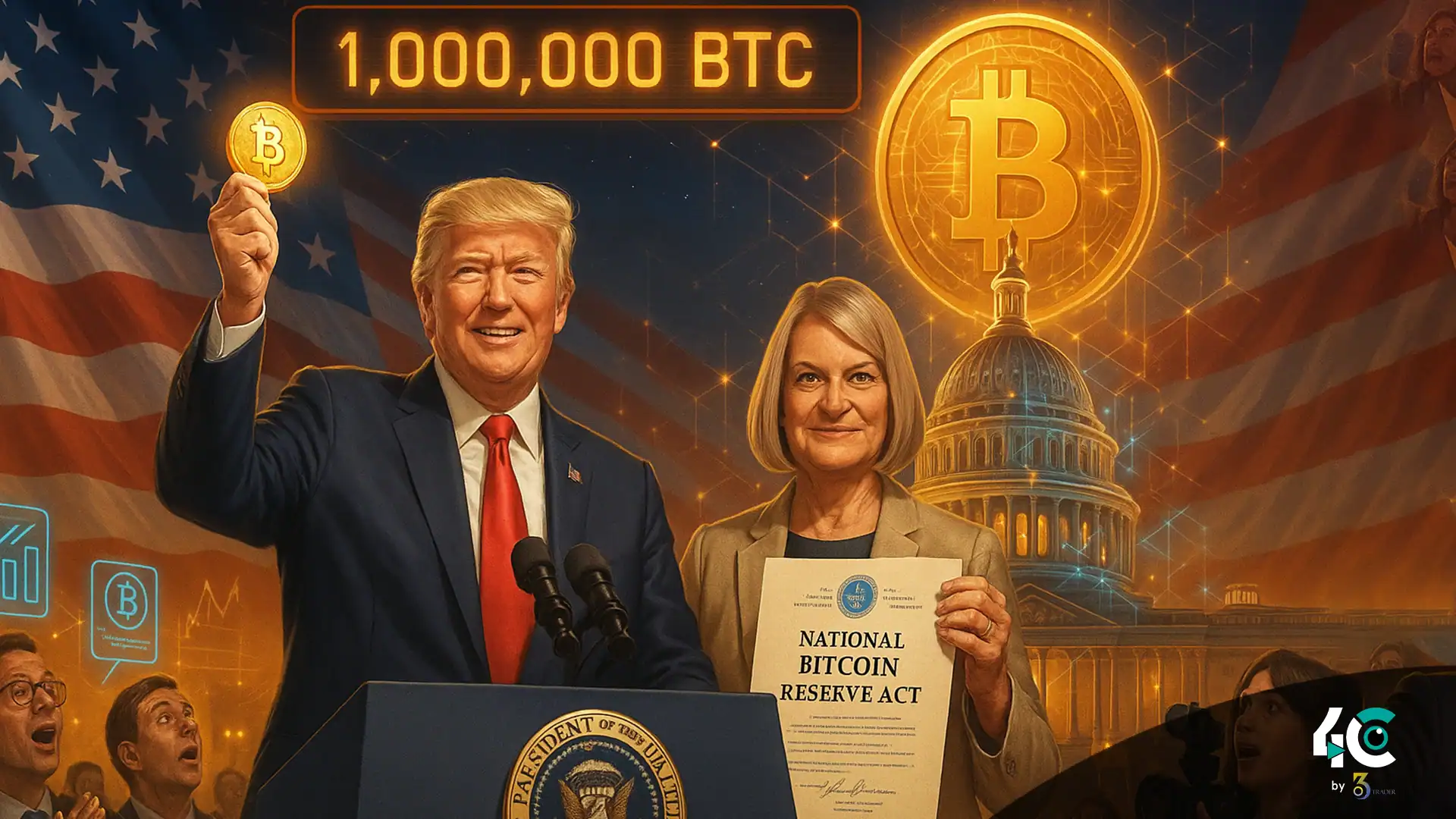The former US president, Donald Trump, is showing support for a plan to create a national Bitcoin reserve. Thus, a major shift is happening in the U.S. crypto policy. The Bitcoin Act would allow the federal government to buy a million Bitcoin in five years, reshaping America’s financial plan.
In her keynote address at the Bitcoin 2025 Conference in Las Vegas, Senator Cynthia Lummis revealed Trump’s endorsement. Lummis has always been a supporter of Bitcoin. Furthermore, he is one of the most famous proponents for digital assets in Washington, D.C. Lummis revealed that the Trump team is prioritizing the Bitcoin Act. They are also working on stablecoins and digital market structure.
The Federal Reserve and Treasury Department said that the transfer would be made without taking any resources from the taxpayer. Rather, it presents a cost-neutral framework for a “Bitcoin Strategic” Reserve”—allowing Bitcoin to act as a digital reserve for gold.
According to Lummis, the Trump administration will issue three different crypto-friendly policies on stablecoins, the digital market structure, and the national Bitcoin reserve. In her opinion, the stablecoin bill has already moved through the Senate Banking Committee and may soon be voted upon.
New bipartisan support is reportedly building for a new stablecoin bill — the GENIUS Act, which establishes a regulatory framework. Trump’s top crypto adviser, David Sacks, recently remarked on the bill’s success in a tough Senate vote.
The proposal of one million BTC will be authorized, which will be highly remarkable as the supply of bitcoins is 21 million coins. If such a purchase were to occur, it would be the first time a global superpower viewed Bitcoin as a sovereign reserve asset. Supporters say it would shield the United States from inflation, enhance global financial leadership, and draw crypto innovation to America.
Lummis noted that more than 30 states are working on their own Bitcoin reserve plans. Even military leaders see national BTC holdings as a way to improve economic security and energy efficiency. By calling Bitcoin “digital gold,” she feels that Bitcoin could accelerate the development of AI and green energy.
Still, the legislation faces obstacles. Concerns have been raised that the purchase could disrupt the market and adversely impact the environment, and that sourcing such a large quantity of bitcoin itself wouldn’t be practicable without the price rising significantly.
The bill may not become law, but the momentum is real. Trump’s support and a growing bipartisan interest in digital asset policy could put the U.S. on a new path with Bitcoin front and center in the nation’s strategy. In the next few weeks, lawmakers will discuss and possibly vote on one of the most ambitious crypto policies in history.



























